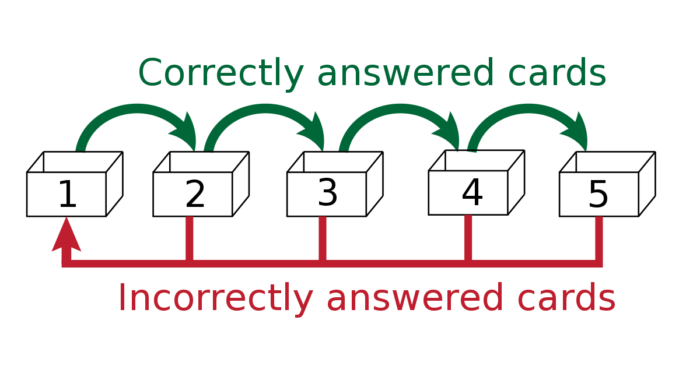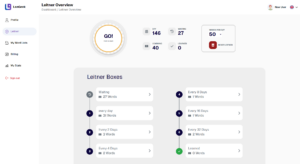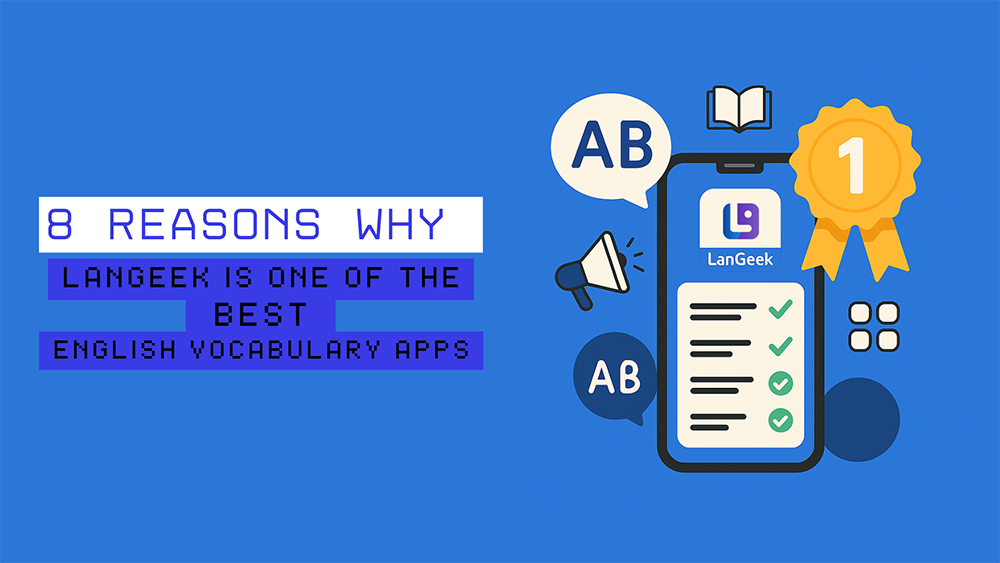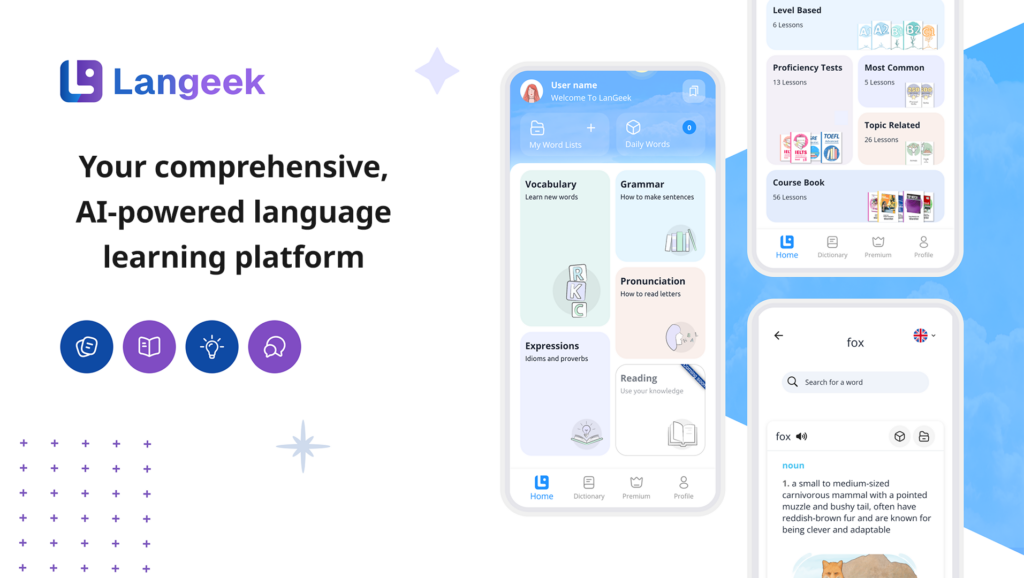Learning English is a challenging yet rewarding endeavor. LanGeek, an innovative language learning platform, has introduced a feature called “Daily Words” which utilizes the Leitner system to enhance vocabulary acquisition. This article explores how LanGeek’s Daily Words helps learners master English and delves into the scientific advantages of this method.
Understanding the Leitner System
The Leitner system is a well-known and effective learning technique based on spaced repetition, developed by the German journalist Sebastian Leitner in the 1970s. The system uses a series of flashcards, which are reviewed at increasing intervals, to enhance memory retention. Cards that are recalled correctly are moved to a box where they will be reviewed less frequently, while cards that are recalled incorrectly are reviewed more often. This method optimizes learning by focusing more on the information that is harder to remember.

How LanGeek’s Daily Words Work
LanGeek’s Daily Words feature integrates the Leitner system in a user-friendly digital format. Here’s how it works:
- Daily Vocabulary Lists: Every day, users are presented with a list of new English vocabulary words.
- Spaced Repetition: These words are reviewed using the Leitner system, ensuring that words are repeated at optimal intervals for memory retention.
- Contextual Learning: Words are presented in various contexts, such as sentences and real-life scenarios, to aid understanding and usage.

Scientific Advantages of LanGeek’s Daily Words
1. Enhanced Memory Retention
The primary advantage of the Leitner system is its ability to enhance long-term memory retention. Research shows that spaced repetition helps in transferring information from short-term to long-term memory. By revisiting words at strategically spaced intervals, LanGeek ensures that learners retain English vocabulary more effectively than with traditional rote memorization.
2. Optimized Learning Efficiency
The Leitner system optimizes learning by focusing on words that learners struggle with the most. This targeted approach ensures that users spend more time on challenging words, making the learning process more efficient. Studies indicate that personalized learning paths significantly improve vocabulary acquisition compared to one-size-fits-all methods.
3. Reduced Cognitive Load
Cognitive load theory suggests that learning is more effective when the cognitive demands on the learner are minimized. The Leitner system reduces cognitive load by breaking down the learning process into manageable chunks. LanGeek’s Daily Words feature presents a limited number of words each day, preventing learners from feeling overwhelmed and allowing them to focus on mastering a few words at a time.
4. Active Recall and Feedback
Active recall is a powerful learning technique where learners actively stimulate memory during the learning process. The interactive quizzes and exercises in LanGeek’s Daily Words promote active recall by requiring users to retrieve words from memory, rather than passively reviewing them. Immediate feedback on performance helps learners correct mistakes and reinforce correct usage.
5. Contextual Learning
Presenting words in context enhances comprehension and retention. Contextual learning helps learners understand how words are used in real-life situations, making it easier to remember and apply them. LanGeek’s use of sentences and scenarios provides rich contextual information, aiding in deeper learning.
Further Reading on the Benefits of the Leitner System
For those interested in exploring more about the benefits of the Leitner system and similar spaced repetition methods, the following articles provide in-depth information and research findings:
- The Ebbinghaus Forgetting Curve and Its Practical Applications – This article discusses the forgetting curve discovered by Hermann Ebbinghaus and how spaced repetition can counteract it.
- Spaced Repetition and the Leitner System: Enhancing Vocabulary Learning – An exploration of how spaced repetition systems like the Leitner method improve vocabulary acquisition.
- The Science of Spaced Repetition – This research paper delves into the cognitive science behind spaced repetition and its effectiveness in long-term memory retention.
- How to Use Spaced Repetition to Remember What You Learn – A practical guide on applying spaced repetition techniques, including the Leitner system, for effective learning.
- Spaced Repetition in Second Language Learning – This article focuses on the application of spaced repetition in learning a second language, with insights into its benefits and methodologies.





